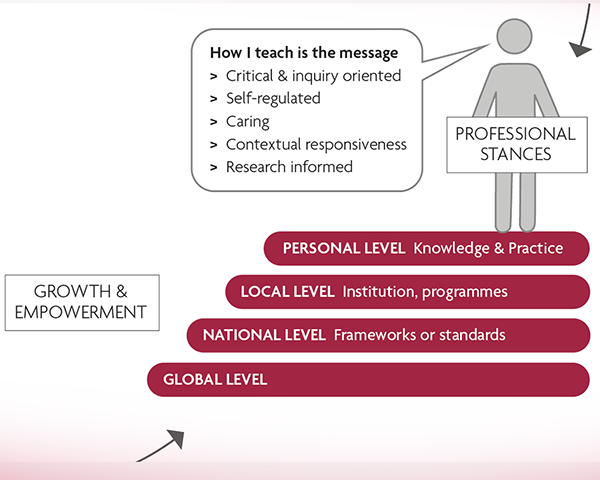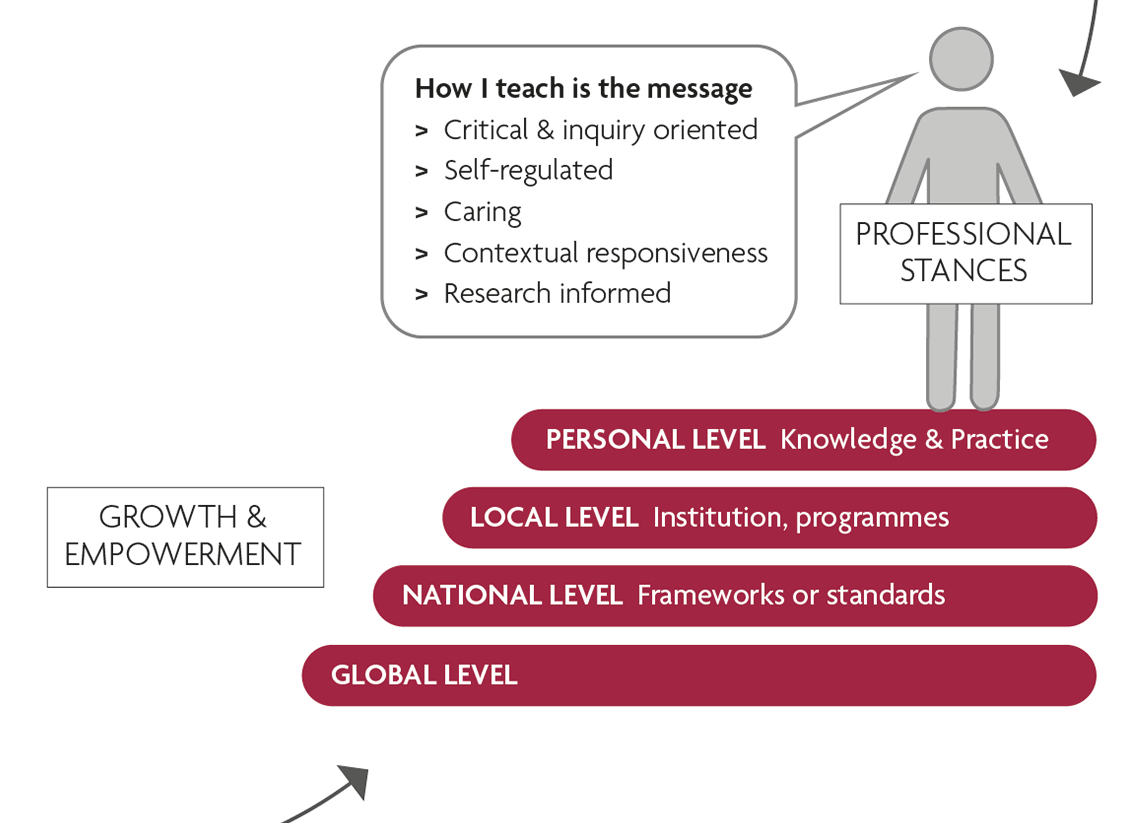The team member role and ways of becoming ‘in-service’

Registration deepens and connects
November 17, 2019
Voices of Teacher Educators: Preparing the Next Generation of Teacher Educators
January 20, 2020The team member role and ways of becoming ‘in-service’

Professional development
We all want to be ‘in-service’ in qualitatively good ways. InFo-TED's conceptual model for teacher educators, shows that we pass through several phases before we are ‘in-service’. This specific part of the complex conceptual model distinguishes the phases of career-long learning as follows:
From the ‘pre-initial’ phase, just recruited and on the doorstep of becoming a teacher educator, one moves to the ‘initial phase’. After maybe one to two years the next ‘induction phase’ and the ‘early career’ phase follow, and maybe after seven to eight years one reaches the in-service phase.
Learning in teams
The European Commission defines teacher educators as all those who facilitate the formal learning of student teachers and teachers, whether at the level of initial teacher education or continuing professional development. To facilitate learning of all teacher educators, teacher educators must be learners themselves and consciously develop professionally. To do so, they need collaboration in teams, in which they can learn together. To make collaboration a culture of practices is, however, often a bumpy road.
In Norway, too, teacher educators from different disciplines work together in a multidisciplinary fashion to address a common subject or programme. In this way, they become members of one, or more often, several teams.
In a study I conducted, I focussed on teacher educators´ experiences with collaboration. The study examines their work in multidisciplinary teams who develop curriculum materials and the situated knowledge arising from them. The data consist of 15 semi-structured interviews and four focus groups meetings of collaborating teacher educators at two educational institutions in Norway. Regarding the professional stages, a lot happened, and a lot was learned at the personal level as well as on the team level.
The team learning can be situated at the local level in InFo-TED´s conceptual model, and it influenced by the national and the global level:
We often interpret the teacher educator’s professional development at the personal level. However, for teacher educators to be able to create good teacher education programmes, and to support professional developmental, teams must understand the importance of the local level. Teacher educators work in educational institutions and belong to (more or less) collaborative teams. It is expected that such teams sets students' optimal learning as the overall objective. In the Norwegian national guidelines, there are formal written expectations for cooperation in teams, such as a mutual sharing of relevant practice experiences, reflections and tools to ensure the programmes are good quality.
The teacher educators in my study saw the exchange of professional experiences also as opportunities to learn and develop as a team. The informants pointed to several incentives that contributed to reaching the programmes´ common goals. Next to the importance of (1) a strong and supportive leader of the programmes, (2) responsibility for a common curriculum and (3) proximity to the actual type of teacher profession, they also pointed to the following incentives related to their professional development (4) ownership of team members, (5) time for close communication between the collaborators, including the students, and (6) development of an identity as a teacher educator
Recommendation
Seeing these findings as a whole, this blog suggests the need for closer attention to the teacher educators´ team member role, taking also in to account the position and contribution of teacher educators in divers stages of their development.
References
Hoydalsvik, T. E. L. (2017). Co-operation is not enough: Teacher educators as curriculum developers in times of change. International Journal of Higher Education, 6(5). 76-87.
Lunenberg, M., Dengerink, J., & Korthagen, F. (2014). Professional teacher educator: Roles, behaviour, and professional development of teacher educators. Rotterdam: Sense Publishers.






